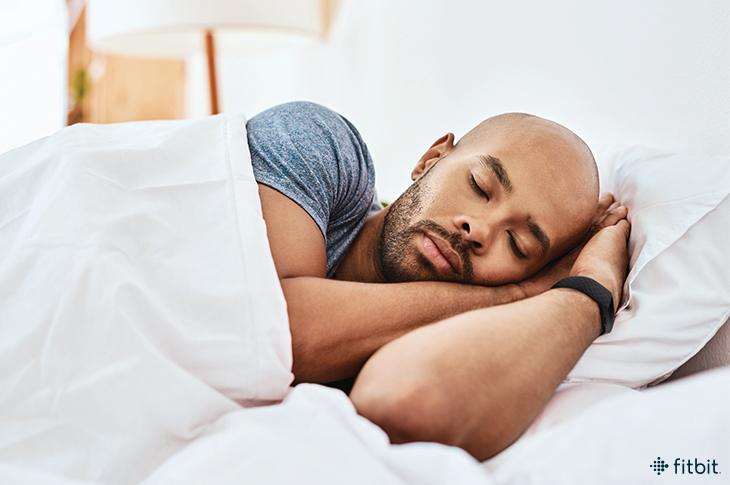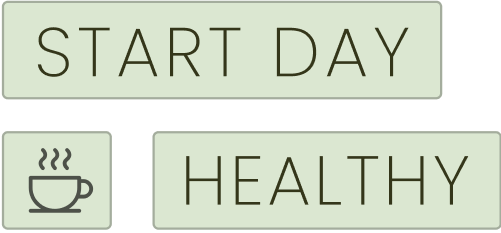
What’s the Real Reason We Spend One-Third of Our Lives Asleep? Here’s Why We Need It
Eight hours. That’s how long experts recommend most adults sleep every night. But why is that? Why should we spend one-third of the day—what amounts to one-third of our lives—catching Zzz’s?
It turns out that sleep does more than provide rest. It activates systems in the body that repair damaged DNA. The molecule that contains your unique genetic code (DNA), provides the blueprint for how the cells develop and function. The environment, chemicals, diseases, aging, and other factors can damage DNA, so it doesn’t replicate as it should. Damaged DNA is implicated in the development of cancer and other diseases. That’s why repairing damaged DNA early on is so critical.
Sleep repairs DNA—but getting enough sleep is crucial
Researchers don’t know exactly how sleep relieves DNA damage, but they found it does. In a recent study in Molecular Cell, scientists found that DNA damage increased in zebrafish when they were awake and decreased when they slept. This is especially important when it comes to the DNA in neurons, which are part of your brain, where a lack of sleep can cause temporary or even permanent damage.
The report found that sleep is vital, and getting sleep, but not enough of it, won’t completely repair the DNA. Researchers in the study found that if the zebrafish didn’t get six hours of sleep per night, they couldn’t completely repair the damage to their DNA. Scientists believe the sleep-DNA repair connection they saw in zebrafish is true for humans too.
Additional benefits of sleep
Sleeping an average of six to eight hours per night can help your workout performance and better control your eating habits. A good night’s rest can reduce inflammation, increase energy, and even improve your skin’s health.
The benefits aren’t just physical. Resting improves productivity and can help you be more mindful and make better decisions.
Hopelessly sleep deprived?
Knowing the benefits of sleep doesn’t mean people actually get enough of it. According to the Centers for Disease Control (CDC), 35 percent of adults in the U.S. don’t get enough sleep. About half of adults say they feel sleepy three to seven times a week.
Unfortunately, it’s hard to recover from missed sleep. Surprisingly, napping during the day or sleeping in on weekends may not be enough to reverse the missed sleep. According to The Sleep Foundation, it can take four days to recover from one hour of lost sleep and nine days to overcome a sleep deficit.
Mental health concerns, including anxiety and depression, can make it difficult for you to fall asleep or stay asleep. Other factors can disrupt sleep, too, such as using alcohol or caffeine, being physically inactive, feeling stressed, staying up too late, or having too much screen time. Changes in routine, which are common when traveling, during holidays, or when seasons change, can wreak havoc with your sleep patterns as well.
Recognizing when you haven’t had enough sleep
Surprisingly, you may not know if you’re sleep-deprived. Some signs, such as being sleepy during the day, are obvious. But others are subtle—or they may be ones you’ve become accustomed to and don’t identify as being related to a lack of sleep. Not getting enough sleep can affect your mood, energy, and productivity. Other signs include:
Feeling hungrier than usual or gaining weight
Increased impulsivity
Difficulty remembering
Trouble making decisions
Lacking coordination
Getting sick more frequently
Having trouble seeing
If you’re not getting the recommended amount of sleep and have these signs, you may need more and better quality sleep.
Tips for better sleep
You may not be able to make up for weeks, months, or years of sleep deprivation, but you can start building your sleep bank with regular rest.
Assess the quality of your sleep. Do you lie in bed for hours? Fall asleep as soon as your head hits the pillow? Or go to sleep only to wake up at 1 a.m.? Beyond the number of hours you sleep, assess how well you sleep. Do you feel rested when you wake up?
As you sleep, you go through multiple sleep cycles, each having several stages—light, deep, and REM. Spending enough time in each stage is critical to feeling rested when you wake up.
With tools like a Fitbit tracker, you can monitor your sleep and see how much time you’ve spent in each sleep stage to see if you should adjust any areas of your sleep habits.
Set a schedule. Experts suggest trying to wake up and go to sleep at the same time each day, including the weekend. You may need to change the schedule occasionally, but a regular bedtime will help cue your body to sleep.
Power down your devices. If you currently check emails and social media or watch movies right before bed, those digital distractions affect your body’s circadian rhythm and wind you up instead of settling you down. Instead, power down your digital devices an hour before bed. Then, read a book, take a bath, meditate or do another relaxing activity that helps you transition to sleep.
Adjust the room. Make sure the physical properties of the room support sleep. Keep the room temperature cool and comfortable. Cover up any lights from chargers. Use an eye mask or ear plugs to block out sights and sounds.
Consider sleep tools like Fitbit’s Snore and Noise Detect to identify snoring and ambient noises that can disrupt sleep. Meditation apps (yes, they’re on your phone, but you can turn them on and place your phone face down so the device light isn’t distracting) can help you rewind and ease you into sleep.
You can also tune into guided meditations with Fitbit Premium. Check out some examples here.
Getting regular, restorative sleep isn’t an indulgence. It’s a necessity for your physical, mental, and emotional wellbeing. The one-third of your life you spend sleeping well can help you make the most of the two-thirds of your life you spend awake.
The post What’s the Real Reason We Spend One-Third of Our Lives Asleep? Here’s Why We Need It appeared first on Fitbit Blog.
